Most Americans see ISIS as an immediate and serious threat to the US and support sending ground troops to fight them
ISIS may be the most immediate and serious threat Americans perceive in the world: twice as many people see it that way as say that about Iran, Russia or even al Qaeda. The latest Economist/YouGov Poll, completed before Israeli Prime Minister Benjamin Netanyahu’s Tuesday address to Congress, finds a public united across party lines in the seriousness of the threat they see from ISIS, and even a willingness – if necessary – to commit U.S. troops to oppose it.
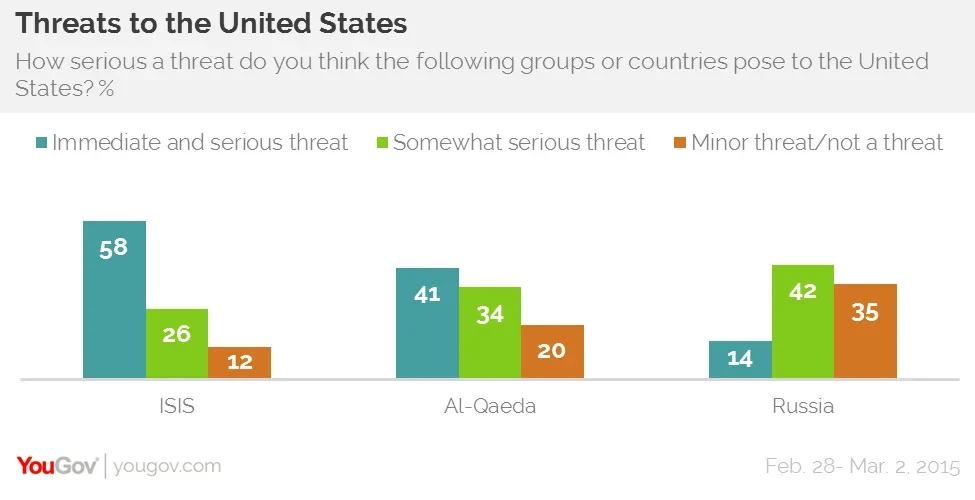
Republicans and Democrats agree on the seriousness of the threat from Isis (Republicans are more concerned about Iran and al Qaeda, and somewhat more concerned about Russia). But the parties are less similar when it comes to the use of force, a pattern seen on questions about other recent military engagements. Democrats are divided evenly; Republicans support ground troops three to one.
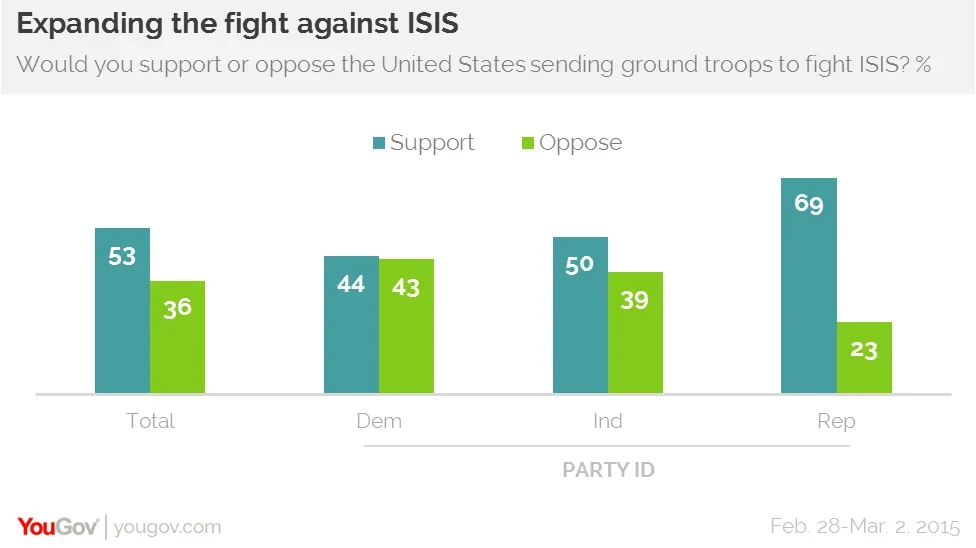
Very few – just 13% -- would rule out the use of ground troops against ISIS entirely. More who oppose sending ground troops now think it should still be kept as an option.
One reason 53% of Americans say they support the use of U.S. ground troops against ISIS may be that they see no alternative. Less than one in four believe the U.S. can fight ISIS effectively through air strikes only. Democrats are a little more hopeful, but not much: 28% of Democrats think air strikes alone can be effective, compared with only 18% of Republicans.
There may be other reasons for party differences: with perceptions of Islam and the damage that ISIS has caused. Republicans are far more likely to describe Islam as more violent than other religions, and overwhelmingly think Muslims around the world are more sympathetic to the terrorists in the war against terrorism than they are to think they sympathize more with the United States.
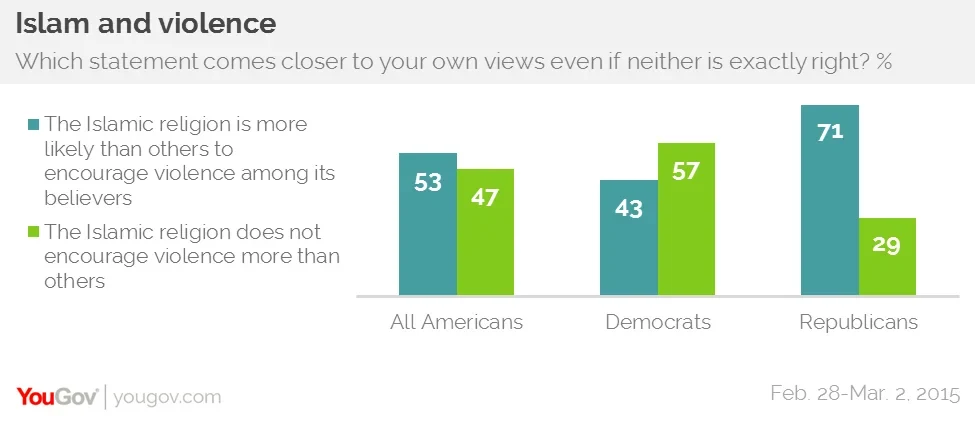
The differences are not due to a lack of familiarity. Republicans are just as likely as Democrats to know someone who is a Muslim. About a third in each party know a Muslim (independents are even more likely than those who identify with either party to say they know a Muslim; that is partly due to the fact that half of those under the age of 30 know someone, and the youngest adults are least likely to identify with either party). But Republicans who know a person who practices Islam are just as negative about the religion and about the sympathies of those who practice it around the world as those Republicans who do not.
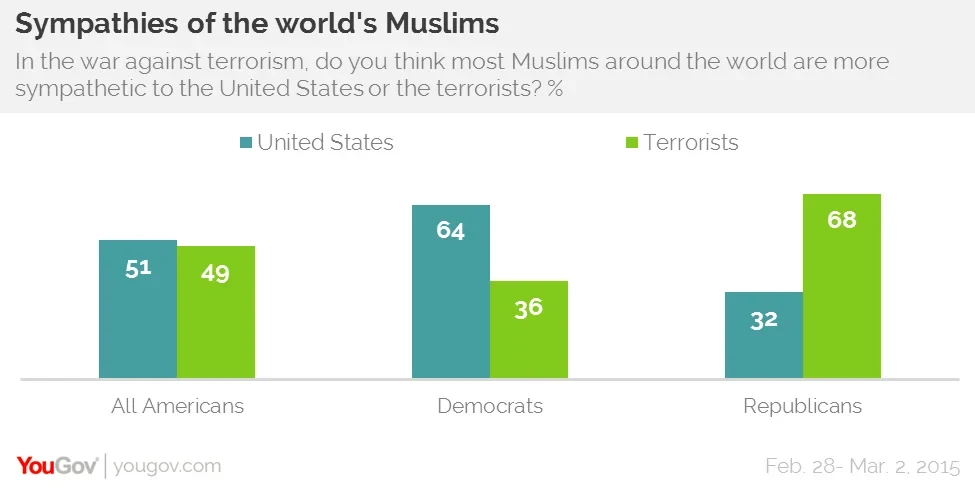
Another difference is that Republicans are more likely –by nearly two to one -- to see ISIS attacks as harming Christians even more than they have harmed fellow Muslims.
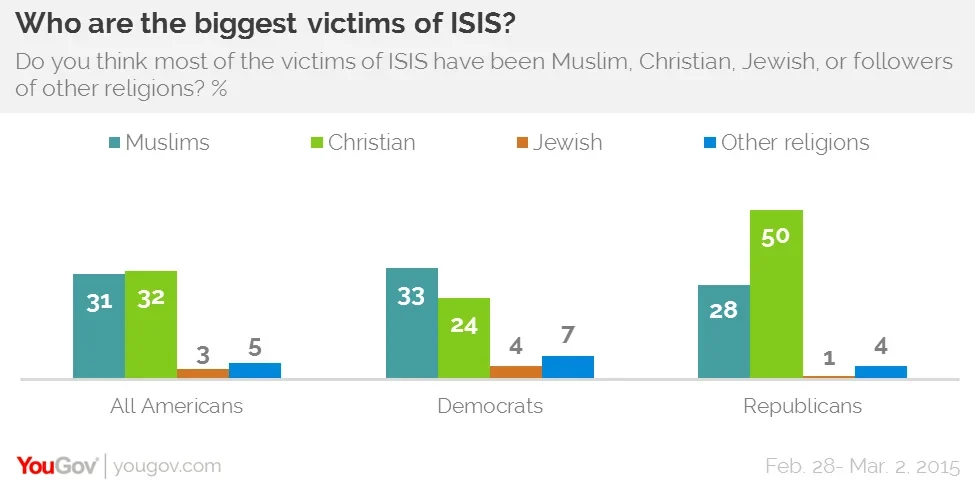
While there have been recent attacks on Christians by ISIS, the group has spent much more time fighting with other Muslims. Many Americans of both parties are aware that there are Muslim countries in the anti-ISIS coalition, but about half the public doesn’t know this.
On the question of ISIS, Americans seem to agree with President Obama. It is, according to this poll, the “severe threat” that he has described. The public would support the use of ground troops if it became necessary. But the President continues to experience doubts from the public when it comes to assessing his performance on this issue. Only 38% approve of how he is handling the situation, and when it comes to foreign policy in general, Americans continue -- narrowly -- to disapprove.
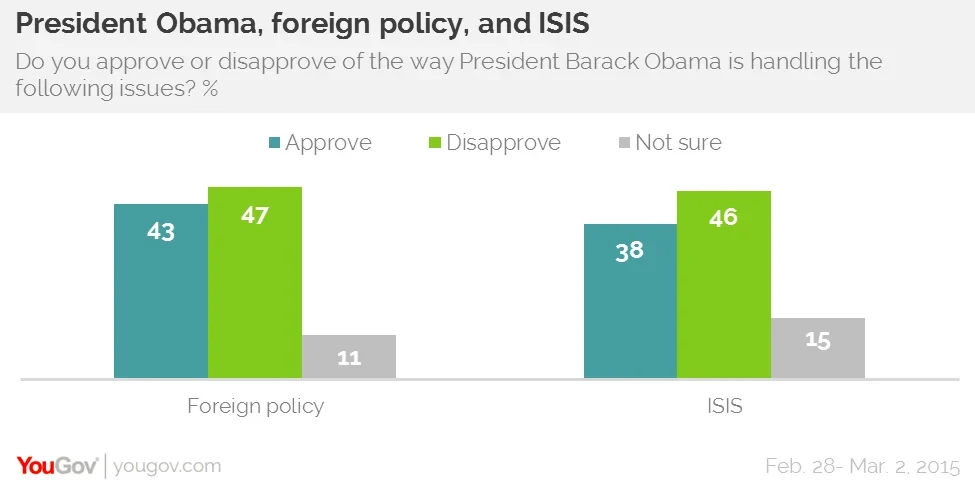
Economist/YouGov poll archives can be found here.







